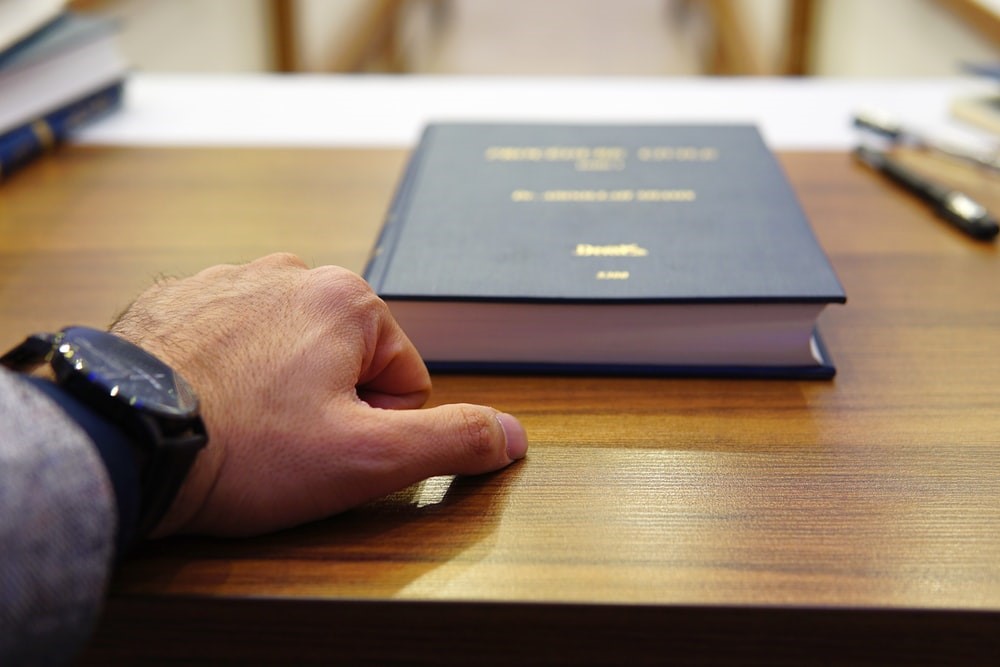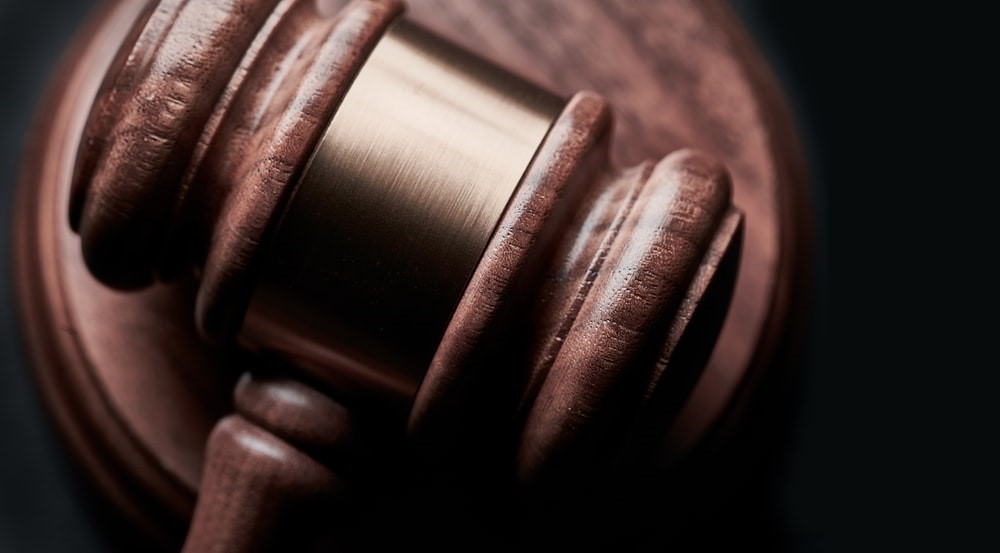Is Perjury a Felony? Laws and Punishment for a Perjurer

Perjury is a crime that poses a substantial threat and hinders justice. In the fifteenth century, the offensive act became widespread and needed more effective deterrents in the form of a law. This measure was necessary to ensure integrity during trials.
A perjury offense consists of giving false evidence or witness to an essential fact that you know to be false. You’re guilty of perjury if you deliberately provide false information while under oath. The offense is a felony, and the penalty carries up to five years imprisonment.
Formerly, perjury punishments were primarily linked with lying under oath in court. However, more recently, the crime was redefined. Now, lawfully, it also covers many other legal proceedings, including trials, bail hearings, dispositions, and civil lawsuits. Grand juries, congressional committee hearings, and family law courts also fall within this category.
The provisions of the law concerning perjury charges extend to sworn statements made to government agencies. These include the ones provided in loan applications or financial affidavits and so on.
It’s also a punishable crime to commit suborning perjury. That is to cause someone else to commit perjury.
What Is Perjury?
Perjury is a crime committed when a witness lies under oath. They commit this crime by providing the court or other legal proceeding with a statement (verbal or written) that’s false. Also, such a statement should have relevance to the subject in the proceeding.
Common Attributes of Perjury
It’s Committed Under Oath
Before the witness goes ahead with their statement (verbal or written), they must have taken a vow to tell the truth. This vow is administered by a lawful authority or audience, such as a notary public, a judge, or other authorized officials. Also, the proceeding has to be competent. This means that every action of the jury must be lawfully authorized. For instance, if a grand jury grants an investigation beyond its powers, that proceeding will be classified as incompetent.
The Crime Requires a Statement
By law, refusing to provide a statement, even to the point of complete silence, isn’t a crime. Nonetheless, this move may concede other charges. Meanwhile, if a witness, under oath, authenticates a false document or statement during a proceeding, it’s also perjury.
The Witness Must Have the Intention to Mislead
It should be clear that the witness intended to mislead the court. In other words, they were aware of the testimony’s falseness but still provided it with an intent to mislead the proceeding.
The Statement Must Be False
If the defendant submits a testimony by mistake or as a result of confusion or memory loss, it’s not perjury.
Inconsistency in Submissions May Lead to Perjury
The court views the witness’ statements as one. Therefore, if a witness claims not to remember an incident, then, later on during the proceeding, such a witness clearly recalls aspects of the same event upon questioning, it’s perjury. If the testimony of the witness is inconsistent in such a way that’s not relevant to the proceeding, it’s not perjury.
The Statement Must Be Made in a Legal Proceeding or a Court
For a statement to be punishable for perjury, it must be made inside the court or other legal proceedings. If not, such a submission cannot be called perjury. If a witness tells lies to their lawyer to create an affidavit, it’s not perjury. However, if that document is signed later on, or presented in a proceeding, under oath, it’s perjury. All sworn documents presented in court or to a government agency are subject to perjury laws.
Submissions Must Be ‘Material’ Statements
For a submission to be ‘material,’ it has to be relevant to the proceeding and must be capable of influencing the outcome of that proceeding. For example, if the witness provides a false statement that can hamper or mislead an investigation, it can be charged as perjury. Even under oath, if the witness lies concerning an immaterial subject that is irrelevant to the proceeding, it’s not classified as perjury. For instance, if a witness falsely brags about washing their car twice a day while testifying in an inquiry that has nothing to do with automobiles, the false statement may not be charged for perjury.

How Can I Defend Against a Perjury Charge?
Apply True Statements
First, recall that perjury is providing the court or other legal proceeding with false testimony. It’s presenting a verbal or written fraudulent submission.
For instance, a defendant in a case concerning possession of stolen property can use a true statement to defend against a perjury charge. He can testify that he did not “carry” the stolen property—because he did not put the stolen item on his property by himself. In this case, he has told a literal truth. It can’t be charged against him for perjury.
If the prosecutor wants to further press on the charge, he can go ahead to inquire more. He can ask questions like, “Did you direct anyone to take the stolen item to your property?”
With more questioning like this, the prosecutor could put the defendant in a tight corner. The defendant may now lie or admit to participating in the theft. Either way, he can now be charged for perjury.
Recant or Correct Your Statement
The court may allow you to recant or correct your statement. Whether or not the change will concede a charge for perjury depends on the law of the state.
There are two federal laws associated with perjury cases. Hence, if a federal court hears the case, there could be one of two outcomes:
Broad Perjury Statute (18 USC §1621)
A person charged under this statute may not necessarily evade prosecution because of recanting an earlier submission during the same proceeding. However, the jury can reconsider if a defendant recants their statement since it expresses that the person didn’t intend to mislead the court.
Narrow Perjury Statute (18 USC §1623)
A person charged under this statute may evade eventual prosecution if they correct or recant a false statement during the same proceeding. Also, the false statement must not have hindered the proceedings substantially.
However, by using the narrow option, the witness still opens themselves up to a charge by the broader statute.
Ultimately, therefore, any witness who wishes to recant must seek expert advice from an experienced attorney.
What Is a Perjury Trap?
Very often, prosecutors call on a defendant exclusively because they know that the defendant will most likely tell a lie, forgetting that they’re under oath. By so doing, the witness would have committed perjury. In this case, the prosecutor won’t need their testimony anymore during the proceedings. This plot is popularly referred to as “the perjury trap.”
In this situation, the defendant can call the attention of the court to point out that a perjury trap was set intentionally. Then again, the prosecutor can simply deny it, and, depending on what the judge decides, proceedings will continue.
Sometimes, reporting perjury to the court can be a daunting task. The issue of whether or not a perjury trap was set is usually a difficult defense to establish, especially for these reasons:
No Materiality
If a perjury charge must take effect, it must be substantial and relevant to the proceeding (i.e., it must be ‘material’). If the perjury trap involves inquiry about an issue that is irrelevant to the subject, the lie may not weigh enough for perjury. It’s often a better option to claim no materiality instead of a perjury trap.
‘Hope’ That a Witness Will Concede a Lie Is Not Substantial Enough to Win a Charge
Merely hoping that someone will lie isn’t enough to make the person do so. Hence, if the questions inquired of the witness were relevant to the proceedings, then the prosecutor is right. At this point, it doesn’t matter whether or not the prosecutor had any hopes that the witness will tell lies.

Defenses Against a Perjury Charge
Depending on how severe the charges are, a range of defenses will or will not be available. However, you have rights, and some of them can be initiated. But it’s hard to say what defenses will or will not be obtainable in the event of a perjury charge.
Here’s a list of some arguments, their pros, and cons:
Double Jeopardy
Usually, this defense can be initiated if a defendant is tried twice, in the same court, for the same charge. However, it may not apply if the defendant is tried for perjury that occurred during a former trial.
There are several perjury examples to illustrate this. Let’s take this one. For instance, a man may be acquitted of charges from a rape case based on DNA results. However, the prosecuting attorney may still charge and prosecute him for perjury if he lied about his alibi while under oath.
Immunity
Prosecutors can offer prosecution immunity to a witness who is already subject to a criminal charge. These witnesses often have essential information concerning a more serious criminal case.
For instance, a prosecutor can grant a low-level accomplice immunity if the accomplice testifies against his crime syndicate’s boss. However, should the witness present any false submission, the defendant can still charge and prosecute them for perjury.
Coercion
This defense argues that the witness did not make his submission out of free-will.
The Submission Wasn’t False
Here, the defendant argues that although the witness provided a ‘misleading’ submission, the statement was technically ‘truthful.’
The Witness Wasn’t Under Oath
This defense is unlikely to present itself. However, it can be enacted given the right circumstances. Here, the defendant argues that their witness wasn’t under oath when they made a false submission.
Immaterial Fact
In this case, the defendant will argue that the false submission wasn’t relevant to any ‘material’ fact.

How Does the Law Punish Perjury?
The penalty for perjury varies. Federal law permits that anyone charged and convicted for perjury can face up to five years in prison and pay a series of fines. State laws, on the other hand, provides varied punishments for perjury. However, perjury is regarded as a felony across all the states. The offense may also attract a minimum prison sentence of one year. It also attracts probation and other fines. The severity of the charge and sentence may increase depending on the gravity of the perjury offense.
Also, depending on the judge, the penalties for perjury can be more severe. If a witness lies under oath to assist or conceal a crime, the judge can charge them. In this case, the court views them as accessories to the criminal offense. They can be charged for trying to conceal or assist the crime. Judges can decide to do this, especially if the charge will attract a more significant sentence.
A person can even be charged for being an accessory to the crime for which they’re currently facing trial. This charge can be enacted if they lied ‘materially’ during the proceedings to hide the crime or mislead the court.
On the downside, there’s no civil remedy for someone who’s convicted wrongfully as a result of another person’s perjury. There’s also no civil remedy for a party to a civil lawsuit whose side lost as a result of their opponent’s perjury.
Knowledge of Falsity
What constitutes the act of perjury isn’t the false statement itself. Instead, it’s the oath, which, before the statement, already affirmed that it’s true.
Many perjury statutes require proof that the witness testified or made their submission with knowledge of its falsity. According to the federal statute, the witness must have acted out of “free-will.” Meanwhile, Ohio’s statutes require that the witness acts “knowingly.”
Defendants often claim that at the time of submission, they believed the statement was true. Therefore, they weren’t in their optimal mental state.
In rare cases, it’s a capital offense when one commits or suborns perjury. This statute can be initiated if the submission leads to the conviction and execution of someone innocent.

Frequently Asked Questions
Very often, there are questions concerning perjury and the various statutes that concern perjury offenses. These inquiries include questions like:
What Are the Elements of Perjury Subornation?
For subornation to be established, first, the prosecutor must successfully prove that perjury was committed. Secondly, they must show that the accused committed perjury corruptly. That’s to say the perjurer must have known, believed, or had reason to believe that he was providing false testimony.
Whose Responsibility Is the Burden of Proof?
Generally, the burden of proving a defendant guilty lies on the prosecutor. They have the responsibility of establishing that the defendant is guilty beyond any reasonable doubt.
Can Prosecutors Lie in Court?
There have been some recorded cases of prosecutorial misconduct. However, such an act is severely punishable by the law, and the offenders face its full weight.
How Can You Prove Intent?
Proving intent can be a daunting task. It has to be proven beyond every reasonable doubt before the prosecutor can win a guilty verdict. Because intent is mostly a state of mind, there’s scarcely any direct evidence to support the claim. Also, hardly does any defendant willfully admit to their crime. But a well thought out, carefully executed case could prove intent successfully.
How Does a Prosecutor Prove Beyond Any Reasonable Doubt?
To prove beyond reasonable doubt successfully, the prosecutor must provide proof that’s close to absolute certainty, at least. If the evidence leveled against the defendant is enough to convince the judge or jury of the crime, that would be enough. Thus, the pieces of evidence are satisfactory to the jury and the judge, and they are ‘beyond a reasonable doubt.’ Hence, the defendant is guilty.
What Is Signing Under the Penalty of the Jury?
Signing under the penalty of the jury means to become a signatory to a document signed to be accurate by the signer. If the statement in the document is materially false and significant to the proceeding, all signatories are guilty of perjury.
How Do Lying and Perjury Apply to Interrogatories?
It can be very damaging if a witness lies during an interrogatory. If this happens, they’re punishable by the law, and the judge can initiate such punishments at trial. If the witness has lied repeatedly and has been knowingly dishonest with material facts, a perjury charge can be enacted by the judge.
How Can You Differentiate Between Perjury and Lying?
One does not commit perjury (and, or, isn’t punishable for it) except they’re ‘under oath.’ Whereas, whether or not they’re under oath, they can tell a lie. Also, the perjurer must lie ‘knowingly’ and ‘materially’ to conceal or assist the crime or mislead the court. Lies of omission are not classified under perjury.
Is Lying in a Witness Statement Punishable as Perjury?
Witness accounts are supposed to contain statements of truth. However, these statements are not usually sworn. Hence, they cannot (in this case) be charged for perjury. Nevertheless, if you lie in a written submission to a court, it’s punishable as contempt of court. Usually, the deponent will have to sign an affidavit, and the affidavit has to pass under a sworn oath. Now, lying on an affidavit is lawfully punishable and can be charged as perjury.



